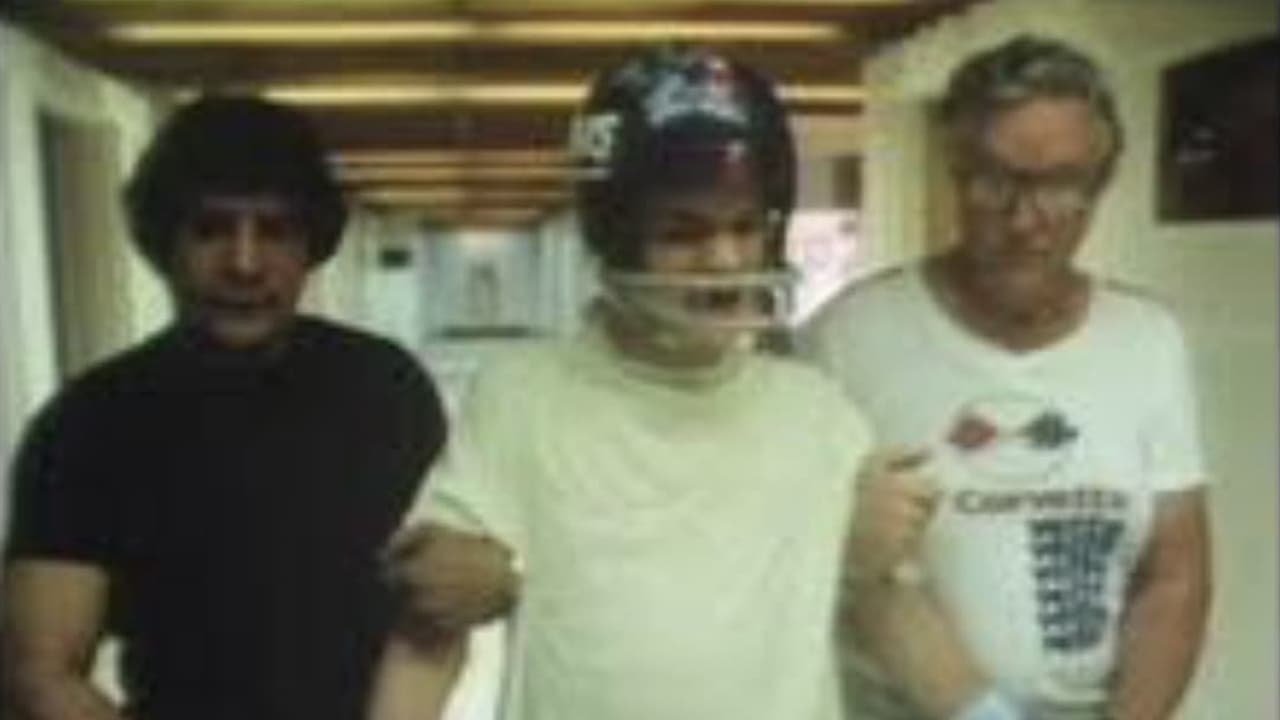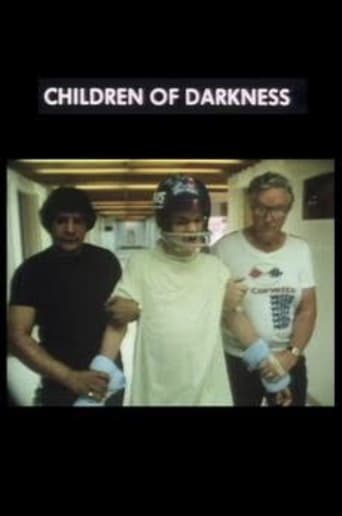

This was nominated for the Academy Award for Best Documentary Feature, losing to He Makes Me Feel Like Dancin'. There will be spoilers ahead:This documentary focuses on mental illness and behavioral disorders in children and four different and specific institutions. The documentary shows four institutions which handle different types of problems and have differing approaches to their patients.The documentary starts with the "least" disturbing situations and facility, Eastern State School and Hospital in Pennsylvania. The children there deal with mental illnesses such as schizophrenia and depression, among others. The only treatment seems to be medication and the staff seems to be called upon to be custodial carers as opposed to trying to find ways to bring about an improvement in their illness. Just keep the kids from hurting themselves and others, give them some small comfort but not much else. Three of the children are interviewed/profiled-Denise, Jerry and Brian. Jerry's story hurts me personally the most, as he has muscular dystrophy and undisclosed emotional problems and was abandoned by his parents at the facility. Brian's mother wants nothing to do with him, but his father is regularly around, takes him home every week and obviously loves his son. Denise is the saddest case, as she's given to cutting herself and has thoughts of suicide. That this segment about Eastern State is actually the most "hopeful" one of the four is depressing.The next facility, Elan School, which specialized in "treating" children with drug, alcohol and behavioral problems whose parents can afford the tab, is more like a prison/reform school than a treatment facility. The methods used to "treat" their clients raise eyebrows, to say the least. As an aside, the facility was closed some years ago for various reasons.The third facility, Sagamore Children's Center, is a New York state long-term care facility for autistic children. It isn't a treatment facility so much as it is a warehouse, even though there are attempts to teach the children there. A counselor there is interviewed and he tries to sound hopeful and as optimistic as he can, but when you first see a child at 12 and seven years later, at 19, there's little to no discernible progress, there isn't much which can be done.The fourth and final institution is South Beach and it makes the other three look positively wonderful by comparison. The focus is on three of four patients who died under unexplained or questionable circumstances. Frankly, this last one disturbed and disgusted me so much that I can't really say any more here or I'll cry, scream and throw things remembering what I saw.There's an epilogue detailing what happened to Denise, Jerry and Brian after filming, presumably up to the date of completion of the documentary. Given that they'd all be in their 40s or possibly even 50 now, I can't say if they're even still alive at this point, though I'd be curious to find out if they even remotely had halfway decent lives, though in at least one case, the chance of that is almost non-existent.I saw this on Youtube and it's well worth watching. Most recommended.
... View MoreScarrier than many horror films I've ever seen, the real life tragedies and dramas viewed in "Children of Darkness" are a depressive tour-de-force into the corridors of psychiatric institutions dedicated to young patients, children and teenagers who early in life are put up against the most difficult of problems: the loss of their minds with mental disorders, schizophrenia, autism, and other emotional issues. And as if wasn't enough to deal with prejudice from society, living far from their families - who most of the time can't raise them properly or sometimes those kids are left behind in those places - they have to face poor treatments on the hands of disastrous and unprofessional doctors. The movie enters three different institutions: the first one is an almost adequate facility, overcrowded with patients and with a small staff that can't help those kids properly. There isn't a psychiatrist there to listen to their problems; there's a bunch of workers who manage in doing the best they can while dealing with paranoid schizophrenics and their constant attacks on themselves and other people. Here we follow some of the kids and their truly hopeless stories. Of the group, this institution is the least problematic. Now, the second place seems a little misplaced from the movie but it's not and the director proves his point. It's a place called ELAN, a sort of shock treatment for fortunate rebellious teenagers who are sent there by their parents before they cause more trouble or end up in jail or dead. The kids there are shoplifters, drug users, violent individuals and there's some suffering with depression or other emotional problems - and those last ones shouldn't be there at all. What ELAN does is more harmful, unethical and insane than real mental institutions. Their "treatment" consists of veteran guests harassing and yelling at the newcomers until they expose their wrongdoings, severe punishments to those who attempt to escape such as beatings (not shown in the movie but mentioned), put those fugitives to stay on a dumpster for hours under surveillance of a veteran, and if this one allows them to escape, he's punished as well. The place is an awful business that exploits desperate rich parents who don't know how to deal with their sons. ELAN's director appears fully confident that his institution is excellent and helps kids, and a simple jump into the future to see that it's not the case: one of the residents featured here was Amy Sedaris' sister, who years later committed suicide. For the record, ELAN has closed down a few years ago after many controversies involving their "treatments".And we close with the third facility, a mental hospital in New York, whose staff under the name of a prominent (and still active) doctor, were accused of murdering several kids. The movie follows three cases, all similar in the way that procedures weren't followed, the staff ignored the patients and they died suffocated in their straight-jackets. Too bad the movie only mentioned future investigations on those and other cases, and I couldn't find much of what happened, if someone got blamed for the murders - all I know is Dr. Jonathan Katz is still practicing."Children of Darkness" remains in the dark, almost unseen and little known, yet it shines a powerful light on an overlooked issue. It's cute and good to see when "Girl Interrupted" or "AHS" presents those themes but reality doesn't get near the horror, the suffering and the desolation of every single kid presented here, young and full of life but already with shattered minds and with no cure in sight to many of their problems, neglected by almost everyone around there. Extremely hard to watch (the beginning, mostly) but it's important that you do. We need to be aware of those people, their difficulties, and learn about places who offer their best care and treatment to the ones we know and love in this situation. 10/10
... View More